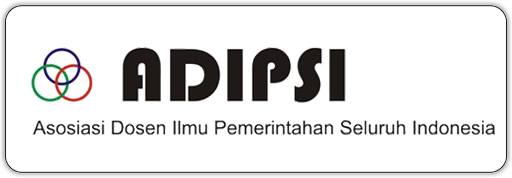Analysis of Employee Performance at the Regional Secretariat of the Riau Islands Province During the Covid-19 Pandemic
DOI:
https://doi.org/10.31629/kemudi.v7i1.4932Keywords:
Performance; Employee; Covid-19.Abstract
Employee performance is a result achieved by employees in their work according to certain criteria that apply to a particular job. Employee performance is a function of the interaction between ability and motivation. The purpose of this paper is to analyze the performance of employees at the Regional Secretariat of the Riau Islands Province during the COVID-19 Pandemic. The research method uses descriptive qualitative. Data collection techniques using secondary data and data analysis using a triangulation approach of relevant facts and logic. The analysis shows that employee performance is not optimal due to the lack of supporting facilities that are not focused on performance budgeting. Because during the COVID-19 period, the focus was only on recovering the national economy so that services at the Provincial Secretariat were not optimal. Then the change in performance culture during the COVID-19 pandemic made employees have to understand information systems and technology in providing public services as a form of service innovation in the future.
Downloads
References
Boehm, F. (2009). Anti-Corruption in Regulation – A Safeguard for Infrastructure Reforms. Competition and Regulation in Network Industries, 10(1), 45–75.
Borman, W. C., & Motowidlo, S. J. (1997). Task performance and contextual performance: The meaning for personnel selection research. Human Performance, 10(2), 99–109.
Castells, M. (2004). The network society?: a cross-cultural perspective. Edward Elgar Pub.
Creswell, J. W., & Creswell, J. D. (2018). Research design: Qualitative, quantitative, and mixed methods approaches (Fifth). Sage Publications.
Dwiyanto, A. (2013). Mengembalikan kepercayaan publik melalui reformasi birokrasi. Gramedia Pustaka Utama.
Dwiyanto, A. (2017). Manajemen Pelayanan Publik: Peduli Inklusif dan Kolaborasi. In UGM Press.
Greene, R. J. (2015). Reward performance? What else? Compensation & Benefits Review, 47(3), 103–106.
Hakim, A. (2007). Korupsi dan Reformasi Birokrasi.
Hakim, L. (2011). Manajemen kebijakan dalam membangun partisipasi publik. Otoritas?: Jurnal Ilmu Pemerintahan, 1(1). https://doi.org/10.26618/OJIP.V1I1.20
Haning, M. T. (2015). Reformasi Birokrasi Desain Organisasi Yang Mendukung Pelayanan Publik Di Indonesia. Ilmu Giri.
Hosen, N. (2007). Sharia and constitutional reform in Indonesia. In Sharia and Constitutional Reform in Indonesia. ISEAS Publishing. https://doi.org/10.1355/9789812305701/MACHINEREADABLECITATION/RIS
Kumari, T., & Shukla, V. (2020). Impact of COVID-19 on Environment and Society. International Journal of Biological Innovations, 9(5), 7352–7363. https://doi.org/10.46505/IJBI.2020.2101
Kurnianingsih, F., Edison, E., & Safitri, D. P. (2017). Manajemen Sumber daya manusia. UMRAH Press.
Lestari, A. W., & Wicaksono, D. B. (2019). Pengembangan kapasitas kelembagaan (capacity building) dalam upaya meningkatkan kinerja pegawai (Studi pada kantor pelayanan perbendaharaan negara/KPPN Kudus). REFORMASI?: Jurnal Ilmu Sosial Dan Ilmu Politik, 9(1), 76–81.
Lipsky, M. (1971). Street level bureaucracy and the analysis of urban reform. Urban Affairs Review, 6(4), 391–409.
Mariana, D. (2015). Partisipasi masyarakat dalam proses kebijakan. CosmoGov: Jurnal Ilmu Pemerintahan, 1(2), 216–229. https://doi.org/10.24198/COSMOGOV.V1I2.11834
Masdar, S., Asmorowati, S., & Irianto, J. (2009). Manajemen sumber daya manusia berbasis kompetensi untuk pelayanan publik. Airlangga University Press.
Moleong, L. J. (2012). Metodelogi penelitian kualitatif. Remaja Rosdakarya.
Ortega, E. M. P., Saez, P. Z., & cortes, E. C. (2010). Can formalization, complexity, and centralization influence knowledge performance? Journal of Business Research, 63(3), 310–320. https://doi.org/10.1016/j.jbusres.2009.03.015
Prasojo, E. (2020). Memimpin reformasi birokrasi: Kompleksitas dan dinamika perubahan Birokrasi. Prenada Media.
Rozi, F., Novianti, T., & Aziz, A. (2016). Sistem informasi akuntabilitas kinerja instansi pemerintah pada biro organisasi pemerintah provinsi Jawa Timur [Um Surabaya]. http://repository.um-surabaya.ac.id/1237/
Sedarmayanti, S. (2013). Manajemen Sumber Daya Manusia; Reformasi Birokrasi dan Manajemen Pegawai Negeri Sipil. Refika Aditama. https://opac.perpusnas.go.id/DetailOpac.aspx?id=549729
Siagian, S. P. (2001). Organisasi dan prilaku administrasi. Gunung Agung.
Simamora, J. (2011). Eksistensi pemilukada dalam rangka mewujudkan pemerintahan daerah yang demokratis. Mimbar Hukum, 23(1), 221–236. https://doi.org/10.22146/JMH.16200
Sobirin, A. (n.d.). Organisasi dan Perilaku Organisasi. In UT (pp. 1–69).
Sonnentag, S., & Frese, M. (2005). Performance Concepts and Performance Theory. Psychological Management of Individual Performance, October 2017, 1–25. https://doi.org/10.1002/0470013419.ch1
Sucipta, P. R., & Edison, E. (2022). Alternatif Penerapan Diskresi dalam Model Pelayanan Publik di Daerah yang bercirikan Kepulauan. Journal Presumption of Law, 4(1), 64–81. https://doi.org/10.31949/JPL.V4I1.2078
Susilawati, S., Falefi, R., & Purwoko, A. (2020). Impact of COVID-19’s Pandemic on the Economy of Indonesia. Budapest International Research and Critics Institute (BIRCI-Journal): Humanities and Social Sciences, 3(2), 1147–1156. https://doi.org/10.33258/BIRCI.V3I2.954
Sutrisno, E., & Maryono, J. (2016). Pengaruh Kualitas Pelayanan dan Kinerja Pegawai terhadap Kepuasan Masyarakat Pada Lembaga Pemasyarakatan Kellas IIB Slawi. Multiplier, I(1).
Syairozi, M. I., Pambudy, A. P., & Yaskun, M. (2021). Analisis Penerapan Good Governance dalam Sistem Informasi Keuangan Daerah. Prosiding Penelitian Pendidikan Dan Pengabdian 2021, 1(1), 677–682. http://prosiding.rcipublisher.org/index.php/prosiding/article/view/208
Thoha, M. (2002). Perilaku Organisasi. PT Raja Grafindo Persada.
Thoha, M. (2012). Manajemen sumber daya manusia. PT. Bumi Aksara.
Umar, H. (2005). Riset sumber daya manusia dalam organisasi. Gramedia Pustaka Utama.
Utami, S. B. (2013). Pengaruh kualitas pelayanan dan kinerja karyawan terhadap kepuasan nasabah pada PT Taspen (PERSERO) Cabang Yogyakarta. Universitas Negeri Yogyakarta.
Wahyudi, R. (2012). Partisipasi masyarakat dalam program pembangunan. Kutubkhanah, 15(2), 105–116. http://ejournal.uin-suska.ac.id/index.php/Kutubkhanah/article/view/234
Wulandari, D. E., & Riharjo, I. B. (2019). Pengaruh Penganggaran Partisipatif Terhadap Kinerja Manajerial Dengan Komitmen Organisasi dan Gaya Kepemimpinan. Jurnal Ilmu Dan Riset Akuntansi (JIRA), 5(4), 1–21. http://jurnalmahasiswa.stiesia.ac.id/index.php/jira/article/view/285
Yoserizal, & Yudiatmaja, W. E. (2010). Strategi Pemerintah Provinsi Sumatera Barat dalam mengembangkan e-government sebagai upaya peningkatan kualitas pelayanan publik. JIANA (Jurnal Ilmu Administrasi Negara), 10(1), 89–100.
Yuditia, & Mahadiansar. (2019). Perilaku Organisasi Positif Dalam Kinerja?: Sebuah Konsep dan Teori (1st ed.). Umrahpress.
Zed, M. (2014). Metode penelitian kepustakaan (3rd ed.). Yayasan Obor Indonesia.













